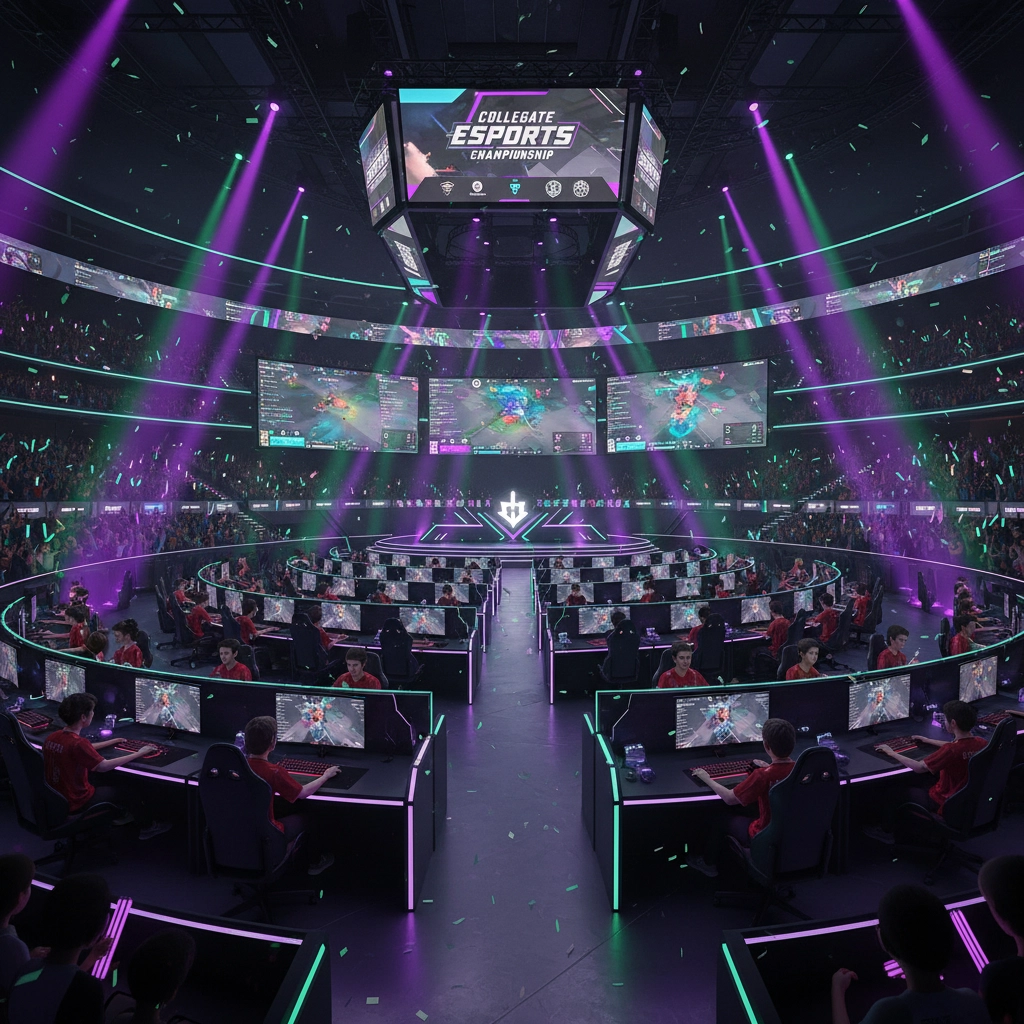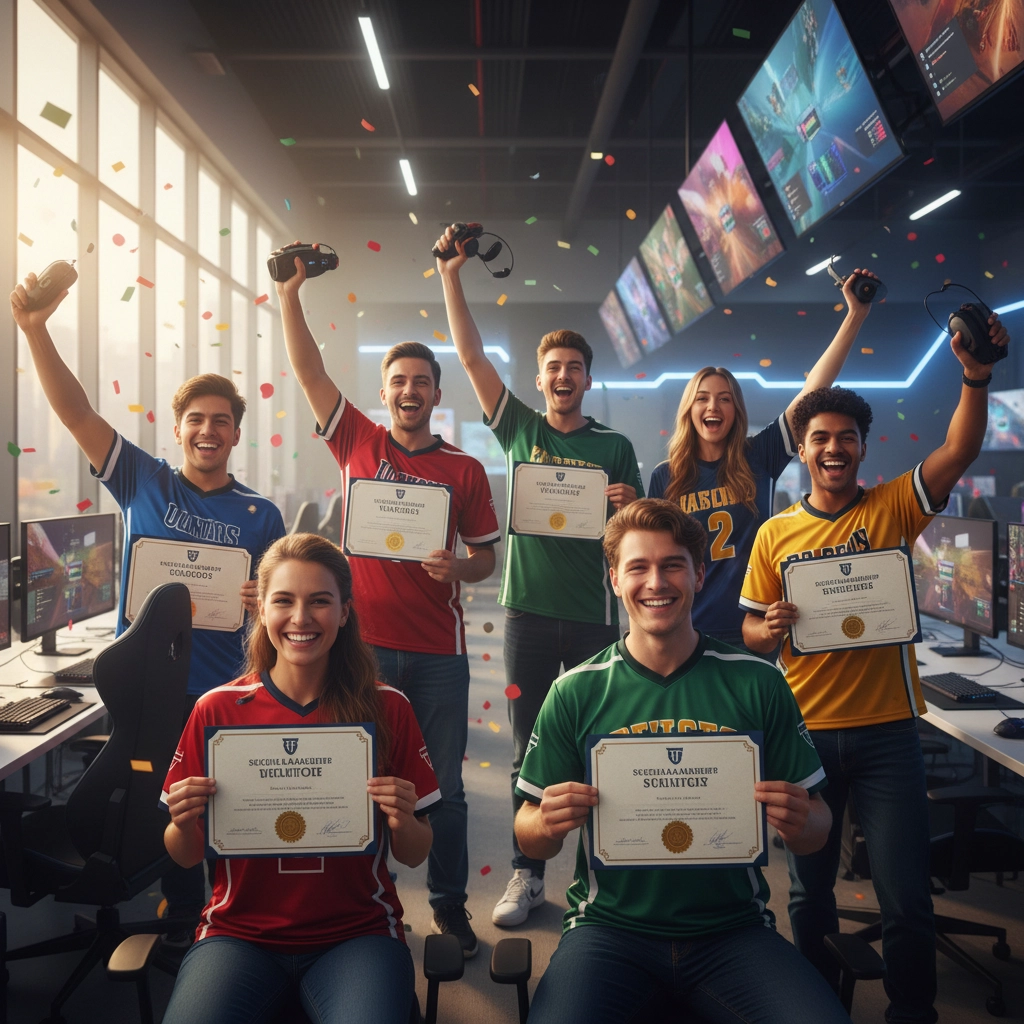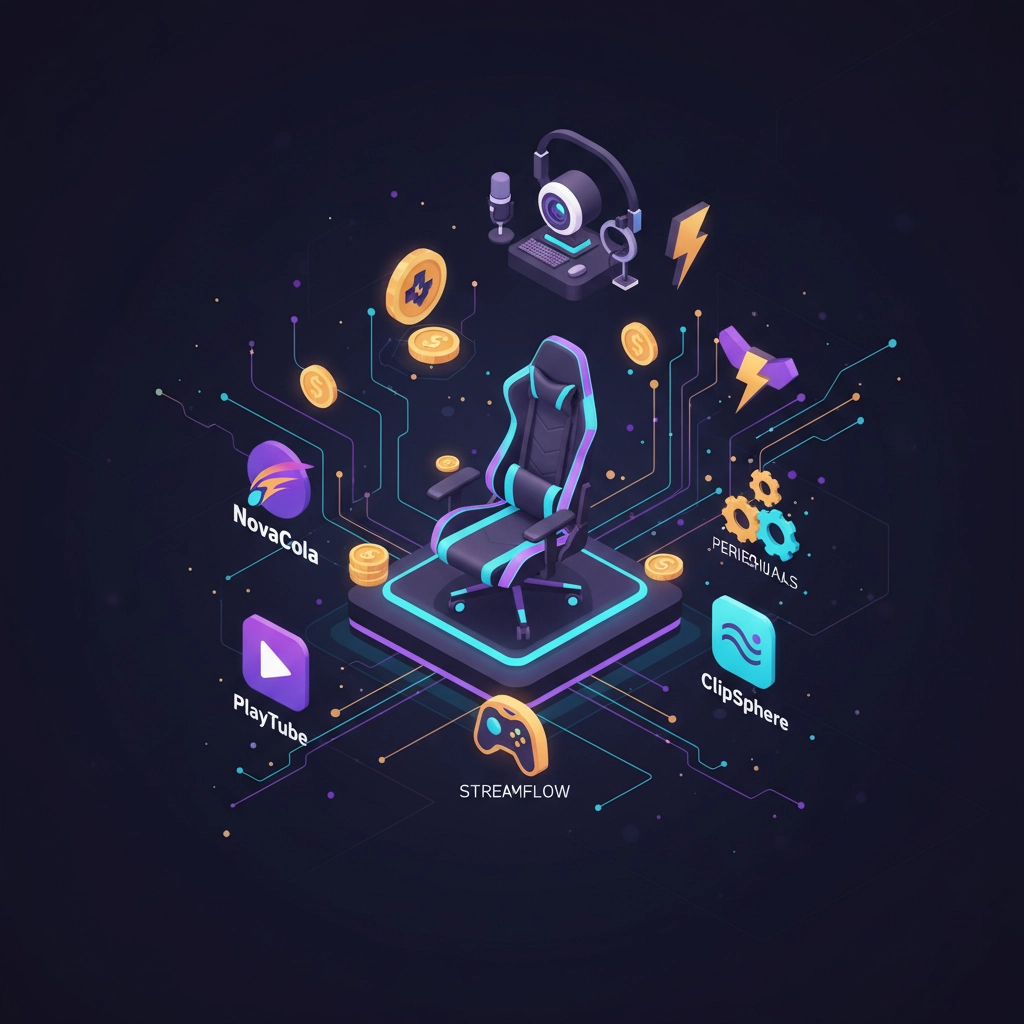The landscape of esports scholarships has transformed significantly in 2025 with the integration of Name, Image, and Likeness (NIL) opportunities. Esports athletes now have access to unprecedented financial support through traditional scholarships and new revenue-sharing arrangements. Understanding these opportunities requires knowledge of regulatory changes, application requirements, and strategic planning.
The Fanz x MySportsMedia Partnership
Fanz has partnered with mysportsmedia.com to launch a comprehensive NIL program specifically designed for esports athletes. This partnership includes a one million dollar scholarship fund distributed across multiple award categories. The program addresses the growing demand for financial support in collegiate esports while providing athletes with professional development opportunities.
The partnership combines Fanz's social media expertise with MySportsMedia's NIL experience. Athletes receive scholarship funding alongside brand development training and networking opportunities. The program operates under 2025 NIL regulations and includes compliance support for recipients.

Understanding NIL Regulations in 2025
NIL regulations underwent significant changes in July 2025. Schools can now make direct payments to domestic athletes through revenue-sharing agreements. This represents a departure from previous restrictions on institutional compensation. Athletes must disclose all NIL deals worth $600 or more to NIL Go, the federal clearinghouse.
International student-athletes face restrictions under F-1 visa regulations. Most cannot receive NIL compensation without violating federal immigration laws. Alternative visa options like O-1 or P-1 may allow compensation for exceptional athletes. Schools provide immigration consultation to explore these possibilities.
Booster-backed deals require verification that they are not disguised inducements. The College Sports Commission enforces rules around payments, endorsements, and roster limits. Athletes must maintain detailed records of all compensation arrangements.
Esports Scholarship Landscape
Over 150 institutions affiliated with the National Association of Collegiate Esports offer competitive scholarships. Award amounts typically range from $500 to $10,000, with an average of $2,000 for team members. Some institutions provide full-ride scholarships for exceptional candidates.
Notable programs include Harrisburg University of Science and Technology, which offers 22 full scholarships annually. University of California Irvine, Arcadia University, and University of Texas at Dallas maintain established esports programs with varying scholarship levels.
Scholarship categories cover major competitive titles including League of Legends, Overwatch, Rainbow Six, and Super Smash Bros. Team positions and individual rankings influence award amounts. Championship performance at local or state levels strengthens applications significantly.

Application Requirements and Eligibility
Academic performance remains fundamental to scholarship eligibility. Institutions require strong GPA maintenance, though perfect scores are not mandatory. Higher academic performance improves scholarship prospects and demonstrates ability to balance gaming and studies.
Gaming skill verification requires documented rankings in competitive titles. Recruiters prioritize top-tier competitors with notable achievements. Tournament performance records and seasonal rankings provide objective skill assessment. Team leadership experience and competitive consistency factor into evaluations.
Portfolio development includes streaming content and highlight reels. Twitch streams or similar platforms showcase gameplay for recruiter evaluation. Highlight reels should include contact information and achievement summaries. Recruiters prefer concise, polished presentations over extensive raw footage.
Community involvement demonstrates commitment beyond individual performance. Participation in esports forums, convention volunteering, and tournament organization strengthens applications. Leadership roles in gaming communities indicate potential for team contribution.
Letters of recommendation from teachers, coaches, or mentors provide character assessment. References should address work ethic, dedication, and potential for collegiate success. Academic and esports mentors offer comprehensive perspectives on candidate qualifications.
Maximizing NIL Opportunities
NIL opportunities extend beyond traditional scholarships into brand partnerships and sponsorship deals. The industry has grown into a multibillion-dollar market with diverse income streams. Athletes can monetize social media presence, streaming content, and competitive achievements.
Building personal brand presence requires consistent online engagement. Social media platforms, streaming channels, and content creation establish audience connections. Authentic engagement generates higher partnership interest from sponsors. Brand alignment with personal values and competitive identity improves partnership sustainability.
Financial planning becomes essential with multiple income sources. NIL earnings are subject to taxation and may affect financial aid eligibility. Professional guidance helps manage complex income structures and compliance requirements. Long-term financial strategies extend beyond competitive careers.

Strategic Application Approach
Application timing varies by institution and program structure. Early application submission improves scholarship availability and selection chances. Rolling admissions programs may have advantages for qualified candidates. Application deadlines typically fall between December and March for fall enrollment.
Program research identifies institutions with strong esports infrastructure and scholarship offerings. Campus visits or virtual tours provide insight into facilities and team culture. Communication with current team members offers perspective on program quality and support systems.
Multiple applications increase scholarship opportunities across different institutions and award levels. Application portfolios should highlight relevant achievements for each program's competitive focus. Customized presentations demonstrate genuine interest in specific programs.
Compliance and Reporting Requirements
NIL deal disclosure requirements begin at $600 value threshold. All qualifying arrangements must be reported to NIL Go by September 2025. Documentation includes contract terms, compensation amounts, and performance obligations. Failure to report can result in eligibility consequences.
Record keeping includes all financial arrangements, brand partnerships, and institutional payments. Tax documentation requires professional preparation for complex income structures. State tax obligations vary by athlete residence and competition locations.
Academic eligibility maintenance requires ongoing GPA monitoring and credit hour completion. NIL activities cannot interfere with academic performance or team obligations. Time management strategies help balance competitive, academic, and business responsibilities.
Future Opportunities in Esports NIL
The esports industry continues expanding with new competitive titles and professional leagues. NIL opportunities will likely increase with industry growth and mainstream acceptance. Early engagement in NIL development positions athletes for future opportunities.
Technology platforms will streamline NIL management and compliance reporting. Automated systems may reduce administrative burden while improving transparency. Athletes should stay informed about platform developments and regulatory changes.
International expansion of NIL programs may create opportunities for global competition and sponsorship. Cross-border partnerships could develop as regulations adapt to international participation. Athletes should monitor international developments in esports NIL policy.

Application Timeline and Next Steps
Successful NIL scholarship applications require systematic preparation beginning months before deadlines. Academic performance monitoring should start early in high school competitive careers. Gaming skill development benefits from consistent practice and competitive participation.
Portfolio creation takes time for content development and presentation quality. Streaming history and highlight compilation require ongoing effort throughout competitive seasons. Professional presentation development may benefit from guidance or consultation services.
The Fanz x MySportsMedia partnership application process includes multiple evaluation stages. Initial applications undergo review for basic eligibility requirements. Qualified candidates advance to portfolio review and potentially interviews or demonstrations.
Athletes should prepare for comprehensive evaluation including academic records, competitive achievements, and personal development goals. The selection process considers both current performance and future potential for growth and contribution to esports communities.
The scholarship landscape will continue evolving with regulatory changes and industry development. Athletes who understand current requirements and maintain adaptability will maximize their opportunities for financial support and professional development in competitive esports.
